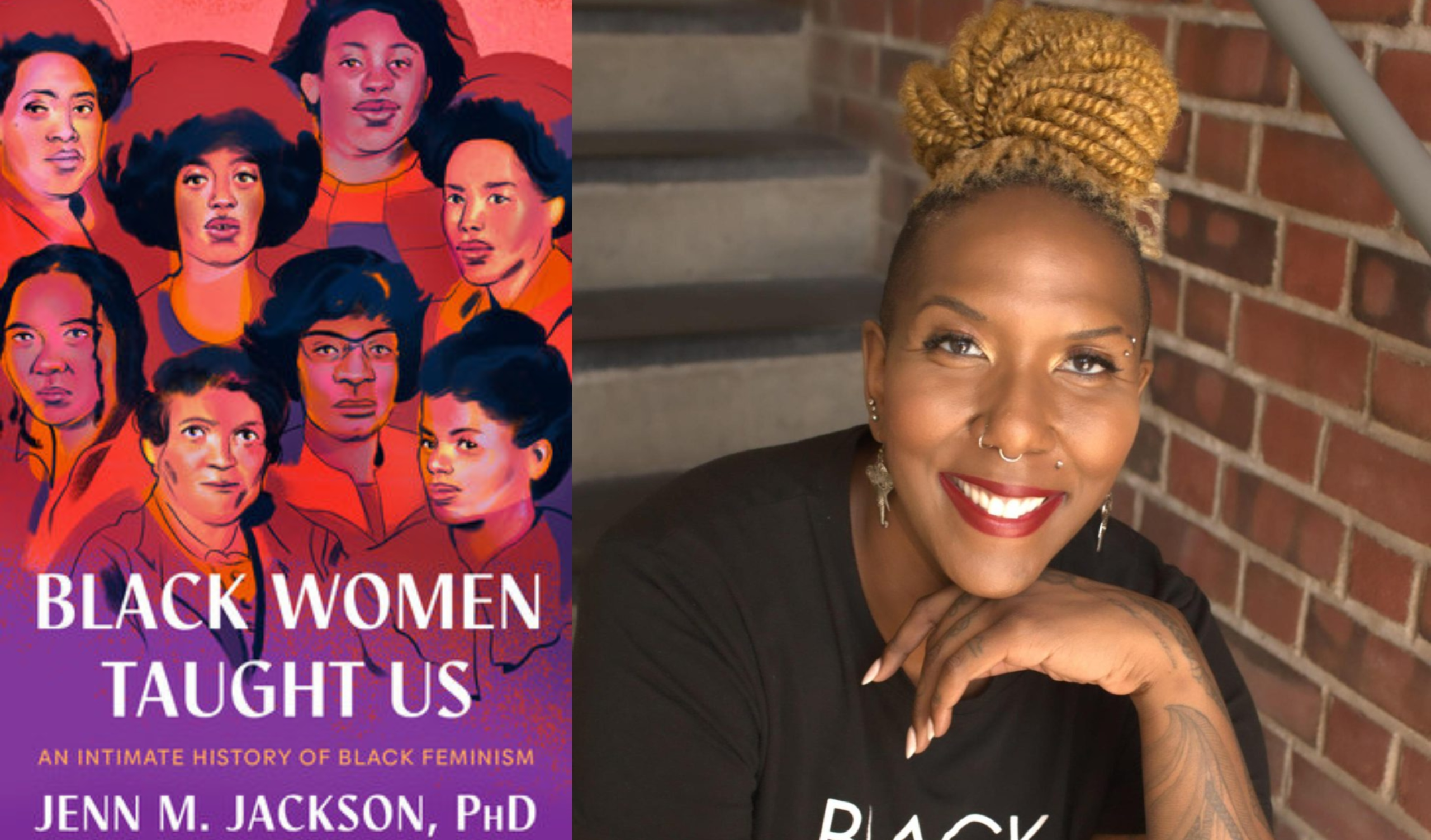Books
As gender wars dominate the social media sphere, political professor and author Dr. Jenn Jackson writes an essential history of Black feminism blended with an inspiring personal story.
In an era where the terms “intersectionality” and “feminism” have been turned into pejoratives by critics, a new book promises to set the record straight about how Black feminism has promoted a more just society.
“Black Women Taught Us: An Intimate History of Black Feminism” is a collection of 11 essays dedicated to Black women changemakers. The collection was conceived and written by scholar Jenn M. Jackson, an assistant professor in the Department of Political Science at Syracuse University.
Dr. Jackson combines the expertise from their acclaimed “Black Feminist Politics” academic course with the power of their own story in “Black Women Taught Us.” The result is a book that pays homage to Black foremothers such as Ida B. Wells, Audre Lorde, and Harriet Jacobs while helping readers understand how layered Black women’s identities really are.
“This book is the culmination of my experience coming to and living through Black feminism,” Dr. Jackson tells theGrio in an interview. “It’s the discovery of Black feminism in a bookstore when I was in my 20s and had never picked up a Black feminist text.”
Dr. Jackson grew up in Oakland, California, during the 1980s and ’90s in a loving family, but encountered a world often hostile to their Black body, with its six-foot frame and brown skin.
“I remember people being so terrified of me,” Dr. Jackson recalls. “I would walk around corners, and little white women would scream, and for me, a little Black girl, a 12-year-old Black girl, I’m like, ‘What are they screaming at? Oh my gosh, I should be scared too.’ And I realize, ‘Oh, it’s me. They’re scared of me.’”
Experiences like Jackson’s highlight how race and gender intersect differently for Black women and femmes, despite promises of a mainstream feminism that is supposed to be inclusive of all women.
Dr. Jackson, who uses both she/her and they/them pronouns, identifies as androgynous — meaning an individual who has both masculine and feminine characteristics — and says they spent their entire life having people question their sex.
“Part of what I wanted to do with this book was to tell a true story about what it means to be in this liminal space of gender and help people understand when white women were talking about ‘gender being a social construct,’ they were giving us this high theory, but they weren’t telling us what it’s like to live it,” Dr. Jackson tells theGrio.
“They don’t know what it’s like to be in a Black body that is automatically seen as masculine because it’s Black, right? They don’t know what it’s like to be called ‘Sir’ and ‘he’ because you’re tall and because people are scared of you,” they continued. “So my book is an effort to show — not just to talk about, not just to theorize — but to show what it means for us to be these intersectional people.”
Acknowledging and understanding intersectionality has become even more important in a time when gender wars dominate podcasts and social media debates alike, often lowering discourse to petty levels that frequently demonize Black feminists.
Dr. Jackson posits that Black feminism shouldn’t be feared. Many Black and African communities historically had societies that were matrilineal — meaning kinship and inheritance were traced through mothers and female elders who all received due respect.
“Gender roles [in contemporary society] have been really cast upon us because we are not [inherently patriarchal]. We come from matriarchal, matrilineal societies,” Dr. Jackson explains.
“Gender roles have also often required that there be power or imbalances; that there be disproportionate amounts of labor associated with women and femme folks,” they add.
Dr. Jackson says that although “Black Women Taught Us” is centered on the experiences of Black women, readers should see it as a text that is inclusive of the diversity of ways Black women and femmes live, love, and move through the world — that includes queer and trans people.
“This book is really an effort to push those boundaries, not just for Black people, but for all people to say, ‘We can show up however we want to.
“This book is giving people permission to be their full selves, to bring all of it with them into every room, into every space and at every table,” Dr. Jackson continues. “And I think that’s how we should be able to live.”
Kay Wicker
Natasha S. Alford
Natasha S. Alford
Associated Press
Associated Press
Associated Press
Associated Press
Associated Press
STREAM FREE
MOVIES, LIFESTYLE
AND NEWS CONTENT
ON OUR NEW APP

